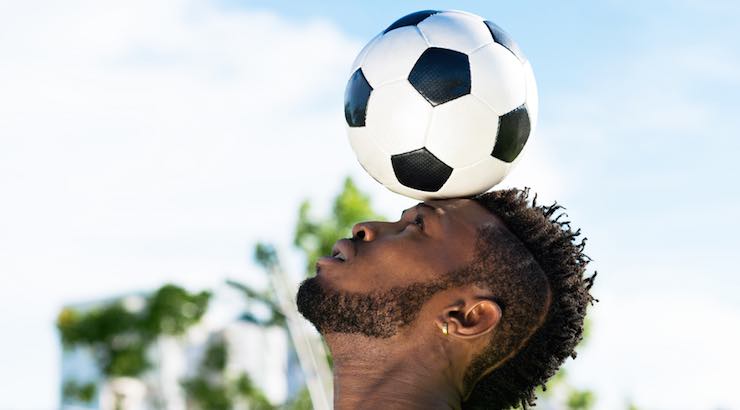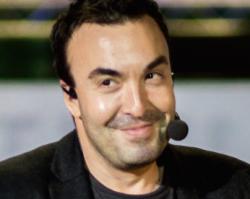Soccer Tough II: Advanced Psychology Techniques for Footballers
SoccerToday columnist Dan Abrahams shares his insights and advice for success on the soccer field for players of all ages. A global sport psychologist and author specializing in soccer, Abrahams global sport psychologist and author specializing in soccer, Abrahams is based in England and works with professional soccer players in the English Premier League (EPL). Abrahams has helped hundreds of soccer players – many of them who play in the English Premier League (EPL) and others who play across Europe. A recent example of his work includes helping Yannick Bolasie make an enormous impact on the EPL for Crystal Palace. Abrahams has held contracts with QPR, Fulham, and West Ham among other clubs and works quietly, behind the scenes with many coaches from top clubs across Europe.
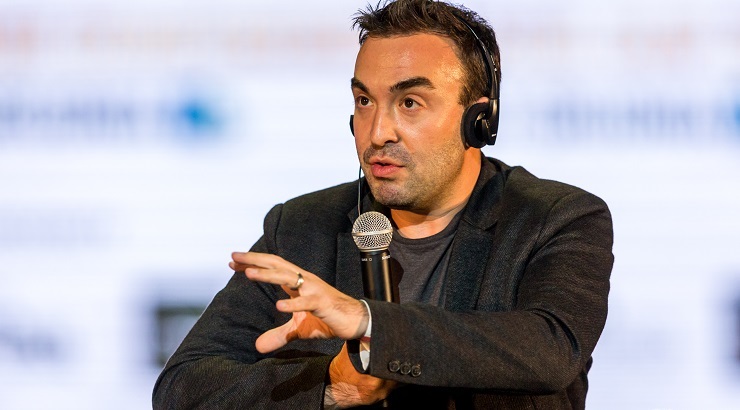 I’d like you to do something for me. I’d like you take a little time to think about your training. Put yourself on the practice pitch – think of the sessions you’ve been involved with recently. Make your inner pictures big and bold and bright. Replay as much as you can from the training you’ve experienced over the past few weeks.
I’d like you to do something for me. I’d like you take a little time to think about your training. Put yourself on the practice pitch – think of the sessions you’ve been involved with recently. Make your inner pictures big and bold and bright. Replay as much as you can from the training you’ve experienced over the past few weeks.
Now I’d like to ask you a question. What is great training? What is great training to you? How would you define training really well?
Most players say to me that great training is related to intensity. “I was really intense in training today…I was non-stop and I was energetic.” I admire this. I like to hear players passionate about training on their toes.
Players may also say that being focused is important. Listening to the coach. Taking on board correction and instruction. Being focused enough to find solutions to the problems that arise in training. Again I can’t disagree. This is important too.
But I think there’s more to effective training. I think that intensity and focus is only part of the picture.
To my mind a soccer player trains to improve – to get better. Intensity will help this a little. And without a doubt focus plays a big part. But allow me to give you a secret about training that I think all soccer players need to know. It’s something I insist my clients in the EPL do week in, week out.
To my mind, effective training is mediated by having a personal plan and then executing that plan.
By having a personal plan related to your game you give yourself the chance to improve as an individual and as a team mate. I call this plan a training script – it’s something all my clients have, and it’s a technique I talk about in chapter three of my new book Soccer Tough II.
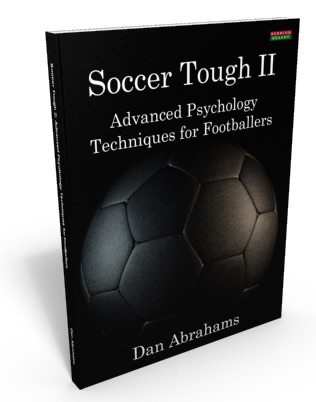 A training script is as the name suggests – a prescription. From Soccer Tough II:
A training script is as the name suggests – a prescription. From Soccer Tough II:
The improvement process is very similar to the kind of procedure you experience when you go to a doctor if you’re not feeling well. When you visit a medical expert they firstly examine you. They then provide you with a prescription.
World class training begins with the profile you have developed in the previous chapter – this is your examination. You now have to work on your game prescription.
It’s impossible to focus on developing every area you’ve chosen under each of your components, so I’d like you to start narrowing down your list. When I work with a client this process is simple. After we’ve ‘profiled the next level’ I ask him or her to pick the three most urgent areas of development, the three that need to get better straight away. I want you to do the same right now.
Pick three that you’d like to focus on over the next month of training sessions. If you’d prefer to pick two areas that are weak and one area that you deem to be strong (that you’d like to maintain and magnify) then that’s fine also.
These three ‘plays’ make up your training script. Your script is, as the name suggests, your prescription. In the previous chapter you gave your game a thorough self-examination. Now you’re self-prescribing. Designing a training script is a treatment champions embark on every month.
As you’ve read I ask players to profile the next level (work out what needs to get better), then pick a couple of areas from their profile to focus on during their training sessions.
The players I work with know in no uncertain terms what great practice is because they know what they are trying to achieve. They have profiled the next level and they have a training script to execute.
Sure, my clients understand that their training sessions are, by and large, dictated by what the coach wants to work on. But they take it upon themselves to pick specific areas to improve within the training session that’s laid out for them.
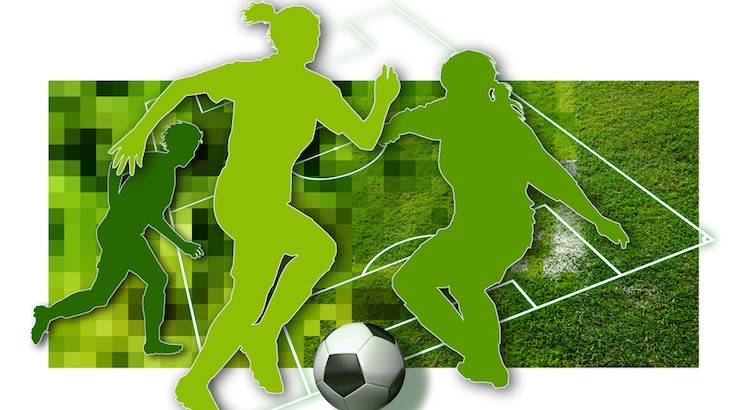
Let me give you an example. From Soccer Tough II:
Last season I worked with a young English defender who played in the Women’s Super League.
I explained to her the importance of profiling the next level and detailed the impact a training script could have on her game. I wanted her to relax about her future, in part by helping her plan a process to get better.
Here was a training script during one of the months we worked together:
What? Awareness – need to improve awareness of movement around her. Currently 4/10 (from video analysis, looks around about 5 times a minute). Wants to improve this to 6/10 this month (looking around 8 times a minute).
How? Do this in training – get one of the coaches to observe and remind when possible.
What? Be a better defender at corners – become more certain and confident. Currently 7/10 (uncertain about tactics and player roles). Wants to get to 9/10 in a month.
How? Talk with coaches about confusion related to tactical knowledge from set pieces (what do they want me to do?) Discuss with goalkeeper what she is thinking and looking to do during corners against. Emphasize positive self-talk when the ball goes out of play for a corner or when a free kick is conceded deep in the team’s half.
Let me be really clear about this. If you want to be the very best soccer player you can be start taking ownership of your training sessions. How? Create a training script for yourself. Write down two or three things you want to improve then go out and execute the script. Strive to be better today at the specific skills you have chosen than you were yesterday.
Great training is intense and focused – but it’s also designed to help you be a better player. You need to practice on purpose to get better.

